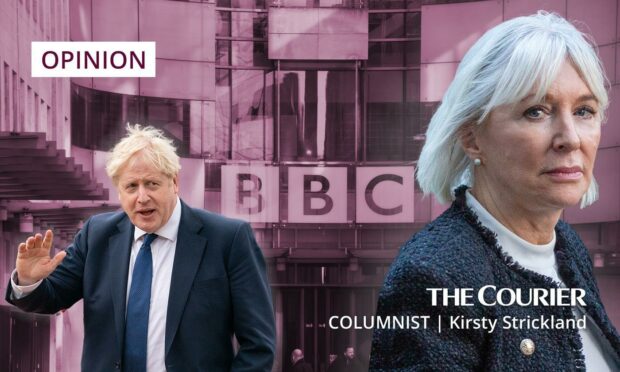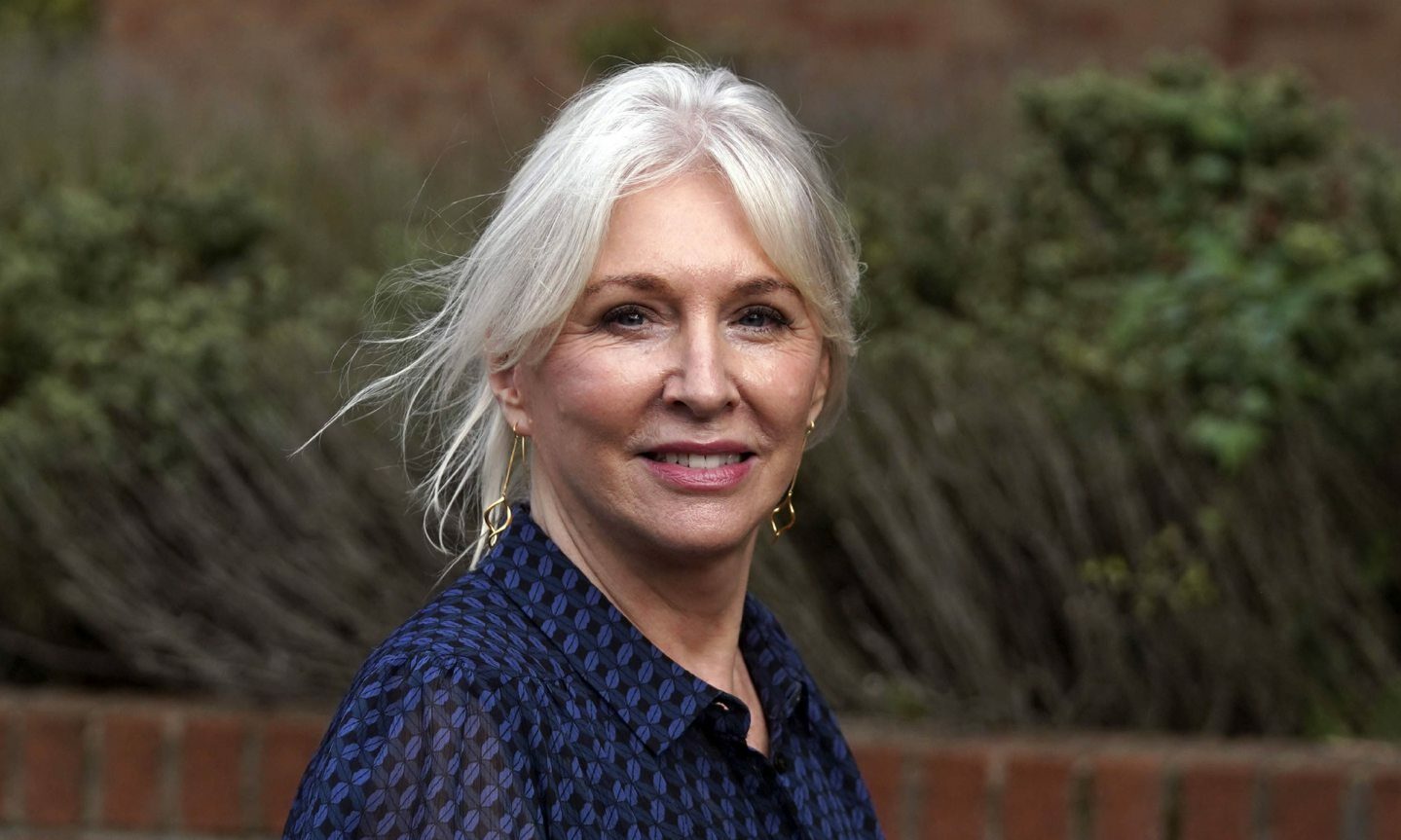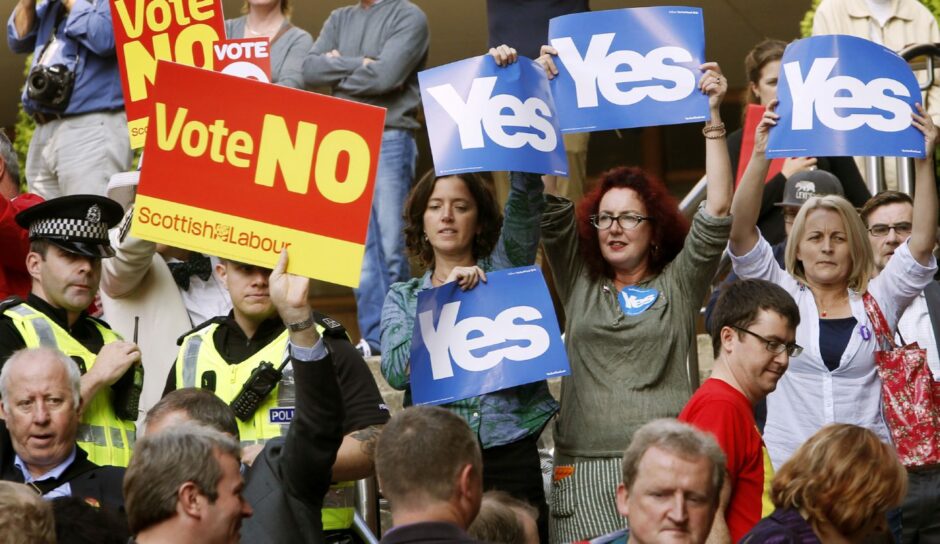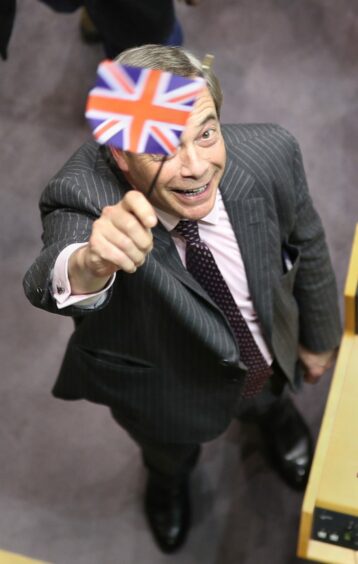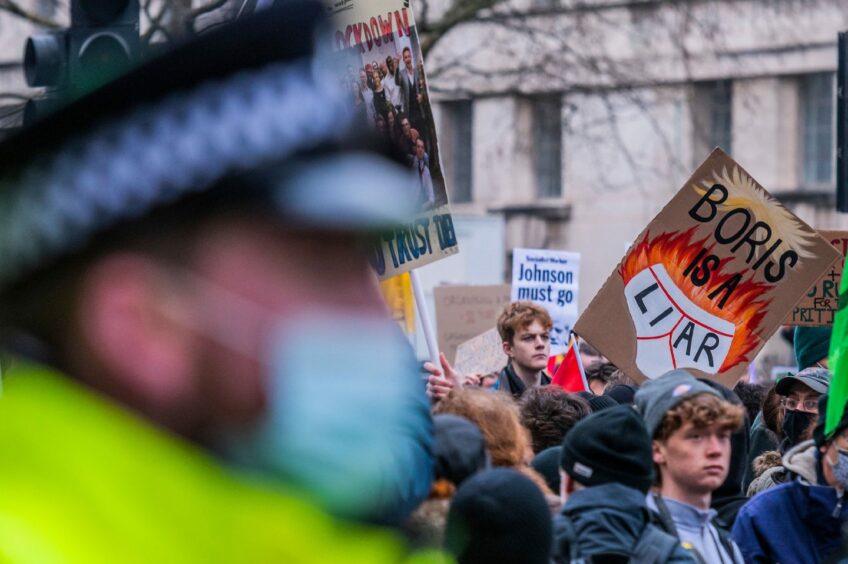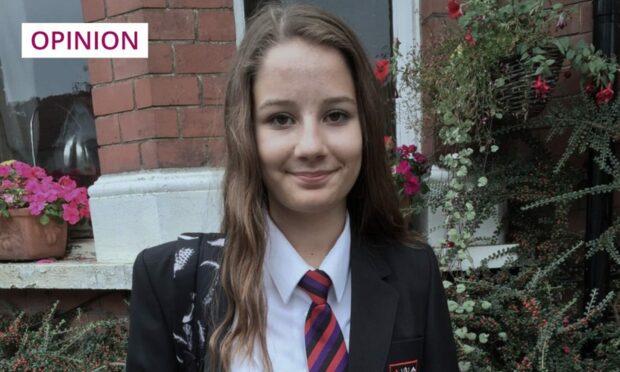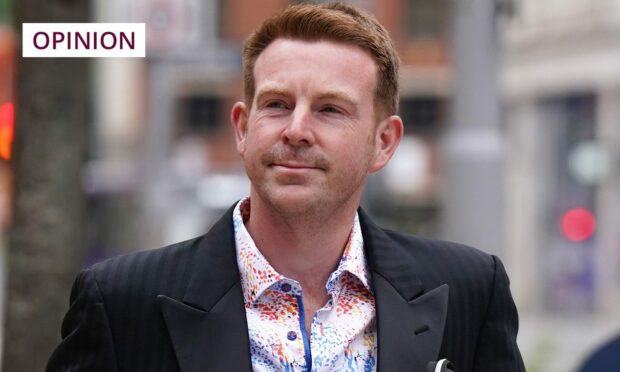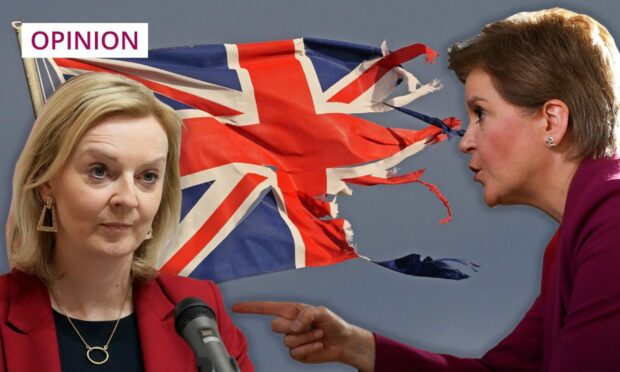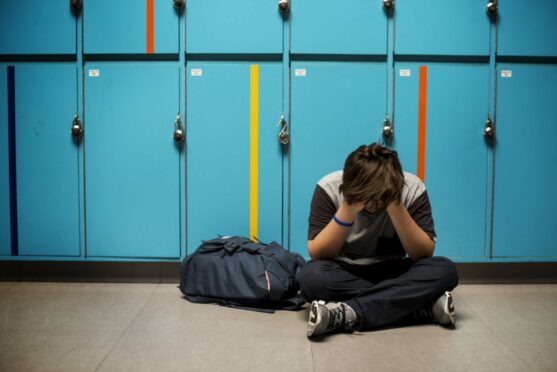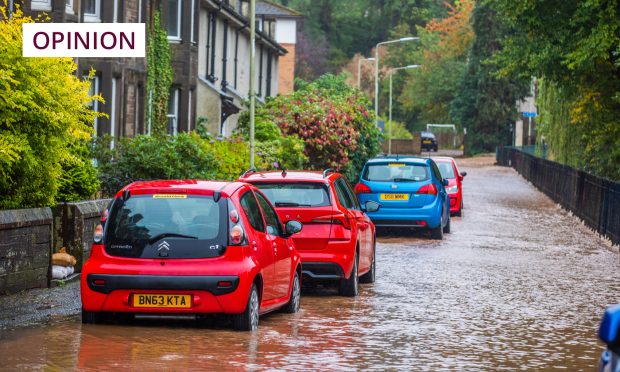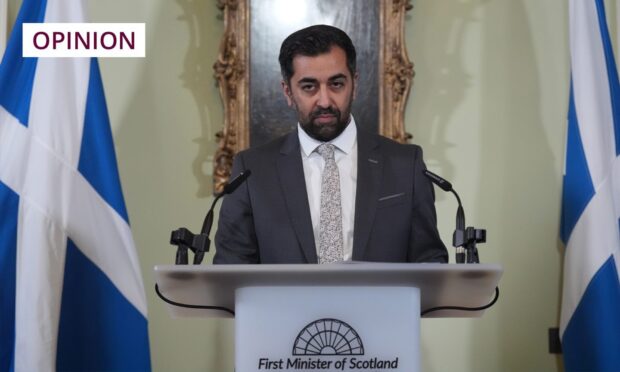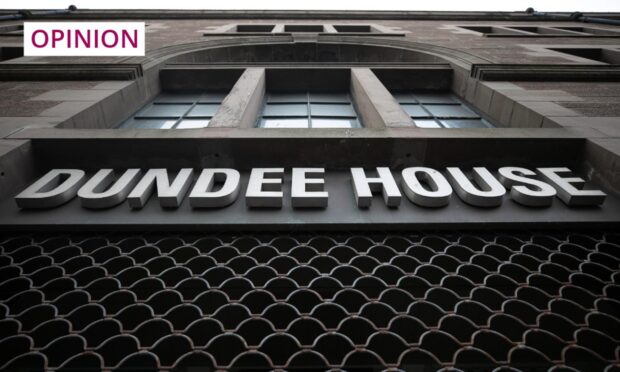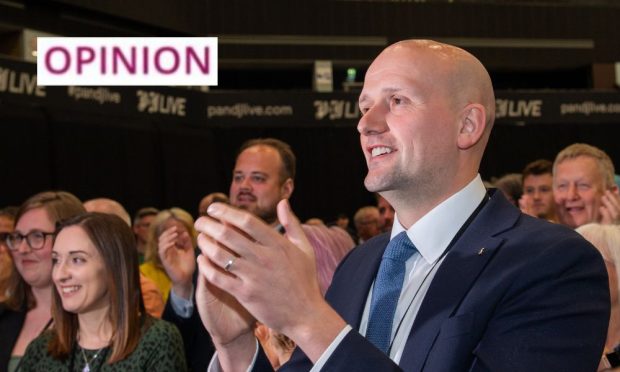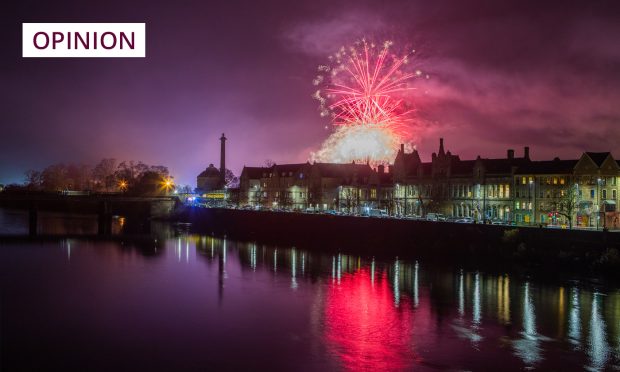As the fall-out from the Downing Street parties scandal continues into what feels like its eightieth week, Boris Johnson is fighting for his political life.
‘Operation Red Meat’ is a new strategy that the prime minister hopes will deflect attention away from his lying, his rule-breaking and his brazen hypocrisy.
With that aim, his government is planning a series of populist policy announcements.
These include inglorious measures such as telling the military to intervene to stop desperate souls crossing the Channel in search of a better life.
And, according to the criminally over-promoted Culture Secretary Nadine Dorries, the government also has its sights set on the BBC.
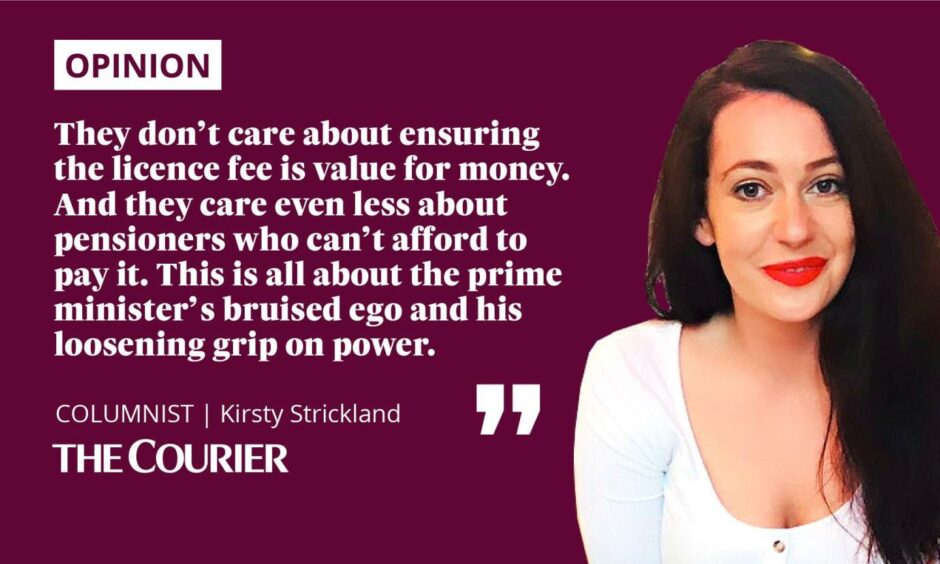
Amid reports that the BBC licence fee would be frozen for the next two years, Ms Dorries said at the weekend that the next funding announcement will be the last.
“The days of the elderly being threatened with prison sentences and bailiffs knocking on doors, are over,” she tweeted on Sunday.
“Time now to discuss and debate new ways of funding, supporting and selling great British content.”
Tory party has had BBC in its sights for years
In her not-so-thinly-veiled threat to eventually scrap the licence fee altogether, the Culture Secretary conveniently forgot to mention that her party was instrumental in the series of events that led to free licences for the over-75’s being abolished.
But this latest funding row is more about the hurt feelings of the governing party than the merits or otherwise of the proposals.
Over the past decade, the Conservative party has become increasingly critical of the BBC’s apparent left-wing bias.
Moving towards the removal of the licence fee might please some Tory backbenchers, but is that really what the public want?
While the idea and threat of changing the BBC’s funding model has been around for years, there is no consensus about what the alternative should be.
Some have suggested a subscription model.
Others say the BBC should be allowed to carry adverts.
Another way might be to fund the BBC by government grant, but that leaves the institution at the mercy of the whims and wants of the government of the day.
Licence fee freeze and an uncertain future
In a statement to the House of Commons on Monday, Nadine Dorries confirmed the licence fee will be frozen for two years.
In the first of many jabs, she said the corporation had “issues around impartiality and group think’’.
This is what we get from the BBC license fee which costs around 43p per day pic.twitter.com/74LI5sGfbB
— Fiona Stalker (@Fionasstalker) January 16, 2022
And then she threw her mutinous colleagues the red meat they had been waiting for – announcing a review into the licence fee model to determine whether a “mandatory licence free is still appropriate’’.
Her statement amounted to little more than a Tory temper tantrum.
This was revenge for the BBC daring to be mildly critical of the fact that Boris Johnson treated lockdown like a stag party in Ibiza.
Scope for change but much to admire
I don’t think the BBC is perfect. Far from it.
I’d imagine most of us have been annoyed by its output at some point.
I thought its coverage of the 2014 independence referendum was insular and, at times, actively hostile towards the Yes campaign.
And I despair at the false sense of balance it too often pursues: where experts are pitted against reactionary racists, misogynists and bigots as though their views hold equal weight.
I don’t like how often they show me Nigel Farage’s face.
And I absolutely loathe Homes Under The Hammer.
But grumbles about its output doesn’t detract from its huge cultural impact and successes.
It’s one of the few UK exports that still garners respect across the globe.
And with the embarrassing shower of miscreants we’ve got running the country, we could use all the help we can get when it comes to international relations.
That’s not to say that the BBC is too precious to ever be changed.
There are good-faith discussions to be had about the BBC evolving with the times.
Consumers have a huge choice of content from a variety of platforms at their fingertips now.
There may be an efficient, cost-effective way of protecting the BBC’s continued viability while offering alternative funding.
The BBC wanted the fee to rise to over £180 by the end of the settlement.
Instead, it will remain fixed at £159 until 1 April 2024.
That’s more money in the pockets of pensioners; in the pockets of families who are struggling to make ends meet. pic.twitter.com/T1uXTirrt1
— Nadine Dorries (@NadineDorries) January 17, 2022
By all means let’s look at the detail and have that debate.
But that’s not what this latest round of threats from the embattled Tory party is all about.
BBC row is cover for a failing PM
They don’t care about ensuring the licence fee is value for money.
And they care even less about pensioners who can’t afford to pay it.
This is all about the prime minister’s bruised ego and his loosening grip on power.
Whatever you think of the BBC, we should be very wary of politicians who want to burn down the house because they don’t like the colour of the curtains.
I suspect this latest funding row will soon be overshadowed by events in Westminster.
The prime minister knows his time in office is nearly up.
When he does go, it won’t be a second too soon.
Operation Red Meat is nothing more than the last desperate gasps of a drowning man.
